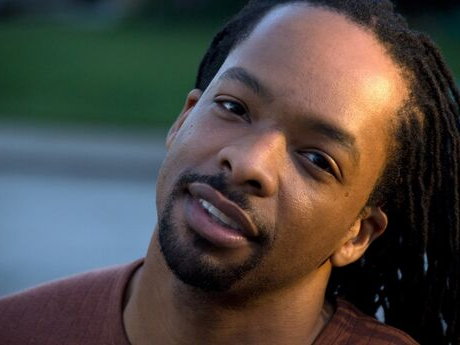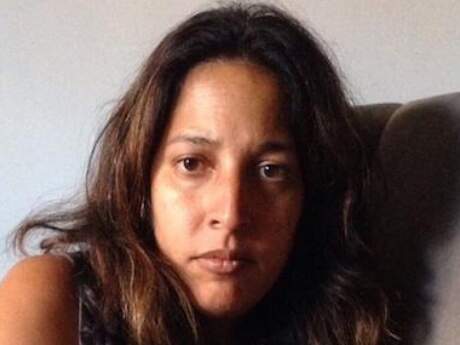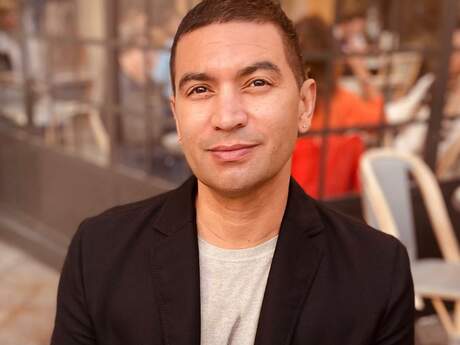Q & A: American Poetry
Q & A American Poetry: Jericho Brown

Multitudes
Sometimes, I think people in love—I mean real passionate, romantic, got-yo-mind love—don't sit around searching out and reading poems and essays that prove to them that they are human beings, that they were not simply imagining their circumstances and existence.
Maybe people in love see the proof of their identity on this planet in the face of their lover. Their love is beauty enough.
Right now, I'd rather be making love than writing this because I just finished reading Wanda Coleman's answers to the questions that prompted these essays ten years ago, and I'm wishing she wasn't so damned right. More than that, I'm wishing the woman would be wrong by now. . . I imagine she's been right about these things, about racism and erasure in American poetry, for decades and that she'll be right for decades to come. At any rate, I'd rather be anticipating the arrival of a lover than wondering what brand of a mess I'm about to make for myself by attempting to characterize what I believe to be American about American poetry.
Instead of getting some, I'm in my sublet of a living room re-reading Adrienne Rich's "When We Dead Awaken: Writing as Revision," Langston Hughes' "The Negro Artist and the Racial Mountain," and T.S. Eliot's "Tradition and the Individual Talent," and I'm thinking about Eliot—of all people—having said things like "Every ethnic writer is not a great writer, but every great writer is an ethnic writer."
In much the same fashion that many creative writers now ask students in workshops across the country, these essays ask artists not to outlaw anything as subject matter or form, especially the things to which they find themselves closest or by which they find themselves wracked. Poems need not be about trees. Poems can be about and in the shape of the blues.
American poetry is at its best when it is as vast and varied as American people mythologize themselves to be. Further, an American poet must be the poet who understands the vastness and variedness of herself as an individual. And that poet must be vulnerable to her work. . . so vulnerable that complete contradictions come through her poems in a gorgeous way. But then again, what do I know? I'm not in love.
I am everyday feeling more and more homeless because of a kind of thinking on the part of artists of color and queer artists who call for an erasure of identity that is supposed to somehow allow them (and me?) to be better artists. Our lot in life as poets in this nation has a great deal to do with how many ways we can see a thing and accept its complexity as well as how many ways we can see ourselves and put into our art every inch of us. We've done some work when we pile a bunch of adjectives in front of the word "poet" and allow ourselves to see the poems within the context of all those adjectives. Without every adjective, we fall for the silly idea that there is only one way to evaluate an art object, and that idea never bodes well for innovative work. That idea makes for really lazy reading. That idea is un-American.
I am all about those multitudes Whitman saw himself containing. I am enchanted and encouraged by the ways American poets of my generation show proof of this part of our inheritance through writing poems that make apparent a multi-voiced speaker. Still, I do hope that this trend does not lead to a loss of responsibility for all that comes along with any one part of those multilayered identities. I hope to read in these essays a white poet saying that he is white and that the privileges that come along with whiteness in the United States have indeed informed his poetics…
. . . Which is why it is so important for me to say that I am male and that I am completely aware that my work explores maleness and masculinity (what ever the hell these may be) in the way that I think several poets of the American tradition do and have done from Whitman to Sandburg to Tony Hoagland (bless his heart). But I haven't done a damn thing if the poems do not admit and question the privilege that attends being born male in this nation.
How nice it would be to show just how male I am to someone else in this empty room tonight, but I'm much too busy shaking my head and muttering, "Wanda Coleman." I should be pulling someone closer to me, but tonight I'm getting in my bed alone. Tomorrow, I'll rise early and go to the gym where I bang my body against itself in a vain attempt to transform it into something someone wants to touch.
Published 2010.


